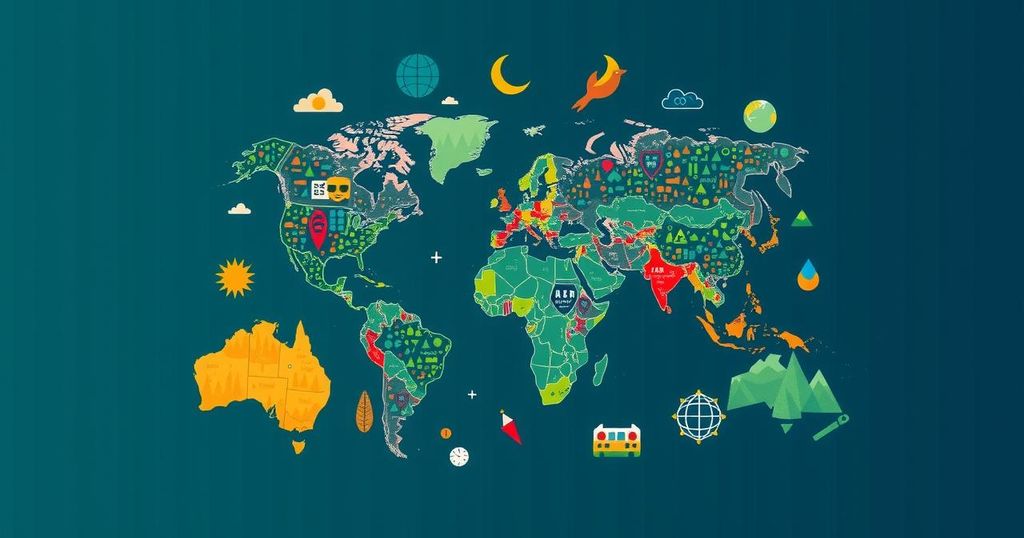The International Court of Justice is reviewing legal obligations of major polluters to combat climate change at the request of small island nations dissatisfied with COP29 outcomes. The court will hear arguments from around 100 countries over two weeks, following a commitment by wealthy nations to provide financial support to poorer countries, which has been deemed insufficient by developing nations.
The International Court of Justice is addressing concerns raised by small island nations regarding climate action commitments following the recent global climate talks. These nations, feeling marginalized by the outcomes of COP29 in Azerbaijan, are seeking clarity on the legal responsibilities of major polluting countries to combat climate change. The court initiated a two-week series of hearings, where it will consider arguments from nearly 100 countries regarding the obligations and potential repercussions for these nations if they fail to act adequately against climate change.
The hearings come in light of the agreement reached during COP29, whereby affluent countries committed to leading efforts in providing financial support, totaling $300 billion annually by 2035, to assist poorer nations in combating the impacts of climate change. Although this agreement marks a significant pledge, developing countries have expressed disappointment, deeming the financial commitment insufficient and criticizing the absence of concrete measures aimed at addressing the fundamental causes of global warming. This legal examination emerges amid a growing doubt regarding the efficacy of international negotiations on climate issues, prompting nations to seek judicial intervention for accountability in environmental commitments.
The topic at hand centers around the ongoing challenges that small island nations face concerning climate change and climate justice. The International Court of Justice, as the principal judicial body of the United Nations, is evaluating whether major industrialized nations possess specific legal obligations to mitigate climate change effects, particularly toward vulnerable nations. Given the backdrop of COP29, there exists a palpable frustration among developing nations regarding previous commitments made by wealthier nations, which they argue remain inadequate to meet the urgent needs posed by climate change. The proceedings in The Hague are a significant step in attempting to establish a clearer framework for accountability in climate action.
In summary, the proceedings at the International Court of Justice signify a critical moment for small island nations seeking fairness and accountability in climate action. As discussions unfold over the next two weeks, the outcomes may have far-reaching implications for the legal obligations of major polluters and the support necessary for vulnerable countries to effectively respond to climate challenges. The court’s decisions could shape international climate policy and influence future negotiations on climate finance and action commitments.
Original Source: www.eenews.net






